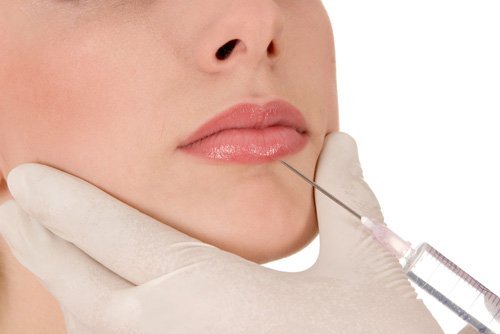
|
The National Institute for Health and Care Excellence says growing numbers of people are injecting tanning agents, dermal fillers and Botox at home and in salons, and some are lax about hygiene. Sharing needles can spread blood-borne diseases like HIV and hepatitis C. Nice is updating its advice for England and Wales accordingly. The guidelines, which are out for public consultation, aim to encourage people to use sterile needle and syringe programmes to stem the spread of infections. Sharps bins Most blood-borne diseases occur among people who inject drugs like heroin and anabolic steroids. But NICE says people seeking out cosmetic fixes are also at risk. A spokeswoman said: "We are seeing an increasing issue with drugs that are used for vanity purposes." This includes the anti-wrinkle treatment Botox, dermal fillers and tanning agents. Prof Mike Kelly, Director of the NICE Centre for Public Health Excellence, said: "Since we last published our guidance on needle and syringe programmes in 2009, we've seen an increase in the use of performance-and-image-enhancing drugs such as anabolic steroids, Botox, tanning agents and the use of dermal fillers like collagen. "We've also heard anecdotal evidence that more teenagers are injecting these performance-and-image-enhancing drugs too. "We're updating our guidance - and our public consultation on the draft update is an important part of this process - to make sure all of these groups of people are considered in the planning and delivery of needle and syringe programmes." One of the recommendations proposed in the new guidelines is that local councils consider providing sharps boxes for people to dispose of used needles and syringes. Rajiv Grover, consultant plastic surgeon and president of the British Association of Aesthetic Plastic Surgeons (BAAPS), said: "Due to the lack of regulation in the cosmetic sector it is impossible to know how many patients could be at risk of blood borne diseases from needle sharing with either Botox or fillers. "These should be considered medical procedures and BAAPS has campaigned for over a decade to have this field of non-surgical cosmetic treatments tightly regulated. The dangers of sharing needles in cosmetic injectables are so great that any practitioner who does this should be considered guilty of a criminal offence and nothing less." |
据英国广播公司9月24日报道,英国国家卫生医疗质量标准署(NICE)称,如今,越来越多的人在家或沙龙注射鞣剂、真皮填充剂和肉毒素,但是很多人忽视了卫生问题,而共用针头有可能传染艾滋病和乙肝之类的血源性疾病。 我们都知道,注射海洛因和合成类固醇之类药物的人容易传染这些血源性疾病,但是据NICE了解,追求美容、采取修复治疗的人也处于此类风险之中。为此,他们正在为英格兰和威尔士修改指导方针,并向公众征求对修改草案的意见,其目的是鼓励人们使用无菌针头和注射器,阻止传染病的传播。 NICE的主任迈克•凯利教授说:“自从2009年我们公布有关针头和注射器使用指南以来,我们看到越来越多的人利用合成类固醇、肉毒素、鞣剂和胶原蛋白之类真皮填充剂的药物来提升外观形象,还听说许多青少年也在注射这些提升外观形象的药物。我们在更新我们的指南,确保其考虑到这些人群以及针头和注射器的传送。向公众征求对该草案的意见是我们更新指南的重要组成部分。” 新指南建议,地方市政委员会向人们提供锐器盒,用来处理用过的针头和注射器。 英国美容整形外科医生协会(BAAPS)主席、整形外科医生拉吉夫•格罗弗说:“由于美容业缺乏监管,我们不可能知道有多少患者因为共用针头注射肉毒素或填充剂而有患血源性疾病的风险。非手术美容疗法应该被视为医疗过程。BAAPS已经为争取严格监管这些非手术美容疗法活动十多年了。共用针头注射美容剂的危险非常大,我们应该认为任何做这件事的从业者都不亚于犯有刑事罪。” 相关阅读 (译者 yuanlu 编辑 王琦琛) |
